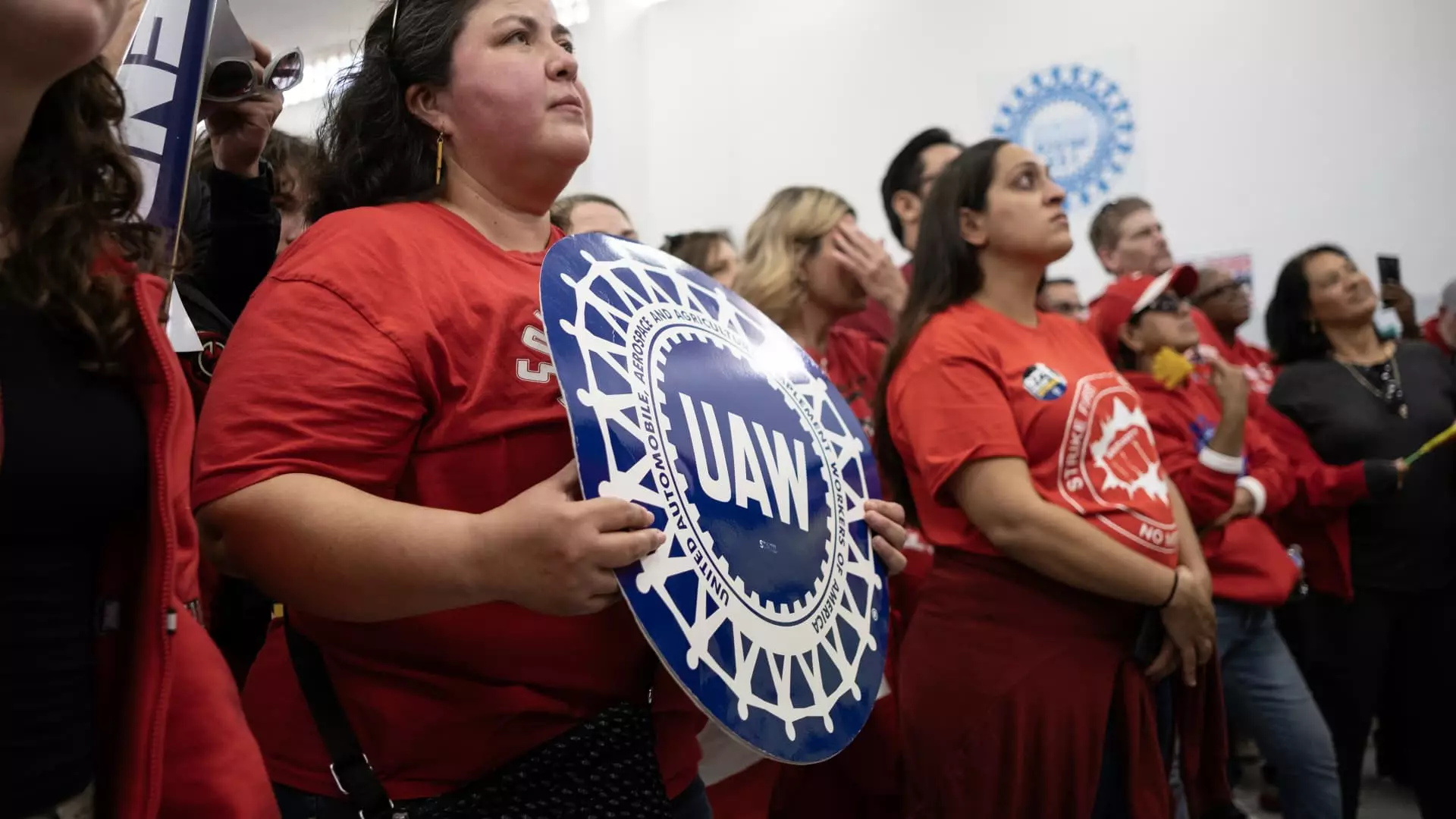In a disappointing turn of events, about 3,900 United Auto Workers (UAW) members with Mack Trucks have decided to go on strike after rejecting a tentative agreement that was reached between the union and company. This rejection came as a shock, as 73% of UAW members voted against the agreement. The strike, set to begin on Monday at 7 a.m., will involve workers from facilities in Pennsylvania, Maryland, and Florida, and will further add to the already significant number of UAW members on strike, including those from General Motors, Ford Motor, and Stellantis.
Raised Expectations and Falling Short
The Mack Trucks deal was seen as a crucial test for the UAW’s members, as it did not meet the raised expectations set by UAW President Shawn Fain. Fain had called for record contracts that included hourly pay increases, equal pay for equal work, inflation protection, and shorter work weeks. Unfortunately, the tentative agreement with Mack Trucks fell significantly short of what the union demanded in ongoing negotiations with the Detroit automakers. This led to many workers expressing their dissatisfaction and voting against the proposed deal. One Mack Trucks worker described the agreement as “disgraceful” and an “insult.”
While Mack Trucks operates separately from the Detroit automakers, some workers expected to receive similar benefits and increases as their counterparts in the Big Three. However, the tentative agreement offered by Mack Trucks did not include elimination of wage tiers, reinstatement of traditional pensions, cost-of-living adjustments, or shorter work weeks – all of which were demands made by UAW negotiators in talks with the Detroit automakers. This discrepancy has left many workers feeling like they are being treated unfairly and receiving less support from the international union.
Ambiguous Terms and Outstanding Issues
The tentative agreement with Mack Trucks had varying terms depending on location and job, but for many workers, it only included a modest 19% wage increase over a five-year period, with a 10% increase upon ratification. It also offered ratification bonuses, increased 401(k) company payments, and some other benefits. However, it failed to address critical issues such as the elimination of wage tiers, traditional pensions, cost-of-living allowances, and shorter work weeks.
Meanwhile, UAW negotiators have demanded a substantial 40% pay increase, cost-of-living allowances to battle inflation, and improved work/life balance, among other bonuses and benefits. UAW President Shawn Fain has stated that these demands, along with job security and wage progression, are outstanding issues in the negotiations with Mack Trucks.
In response to the rejection of the tentative agreement, UAW President Shawn Fain released a message affirming the authority of the union’s members and acknowledging their final say. Fain emphasized the union’s commitment to exploring all options for reaching an agreement, indicating that negotiations are still ongoing. However, he admitted that they have not yet achieved the desired outcome.
Mack Trucks President Stephen Roy expressed surprise and disappointment at the union’s decision to strike, deeming it unnecessary. Despite the strike, Roy stated that the company remains committed to the collective bargaining process and is confident that they will reach an agreement that ensures competitive wages and benefits while securing the company’s future as a competitive and stable employer.
The rejection of the tentative agreement by UAW members with Mack Trucks has led to yet another strike within the automotive industry. This strike highlights the discontent and dissatisfaction among workers who feel that their demands for fair treatment, wage increases, and improved benefits are not being adequately addressed. The ongoing negotiations between the union and the Detroit automakers, as well as Mack Trucks, will determine the outcome of these disputes and shape the future of the automotive industry.


Leave a Reply